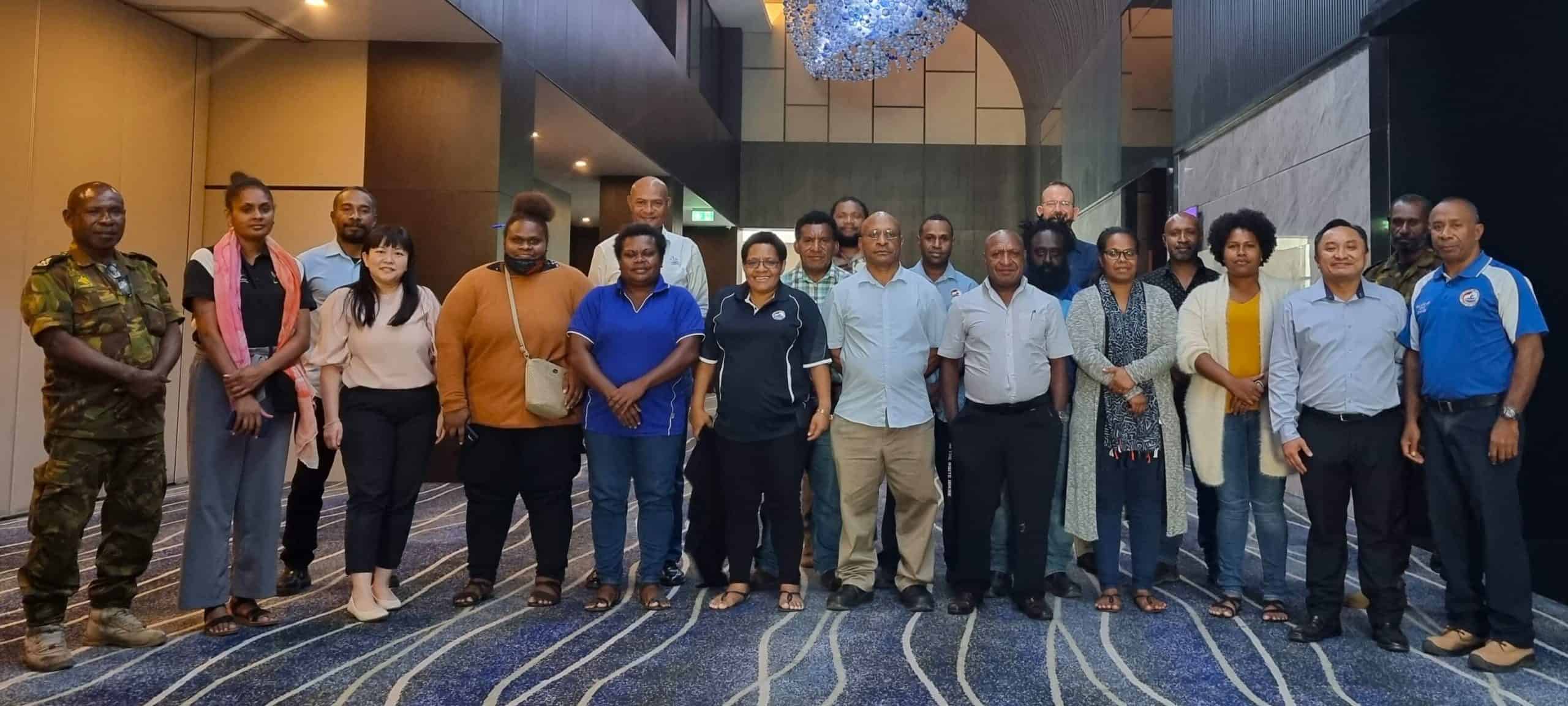The National Maritime Safety Authority (NMSA) of Papua New Guinea has further improved the country’s oil spill response capabilities. February saw senior representatives from key maritime stakeholders attend Level 3 Oil Spill Response Training in Port Moresby. The training comes on the back of the country’s first National Spill Response Exercise held last November.
The NMSA is the lead agency for coordinating the response to spills of oils and other pollutants in PNG’s waters. The Level 3 training it recently coordinated was conducted by Oil Spill Response Ltd, a Singapore-based industry-funded cooperative that provides preparedness, response, and intervention services to members such as the NMSA.
Stakeholders represented at the training were relevant government entities, including the PNG Defence Force and PNG Ports Corporation, businesses such as Puma Energy, Pacific Towing, and AES, as well as Pacific Maritime College and the PNG Conservation & Environment Protection Agency (CEPA). Several of these organisations, including marine services and towage company Pacific Towing, also played significant roles in the 2022 National Spill Response Exercise – an emergency response simulation training drill conducted in Port Moresby’s Fairfax Harbour.
Pacific Towing is Melanesia’s leading spill response and salvage operator, as well as the region’s only member of the International Salvage Union and International Spill Control Organization. General Manager Neil Papenfus was enthusiastic about the Level 3 training that he attended together with other members of his senior leadership team.
Papenfus said that it was “excellent to see so many significant stakeholders come together for the training which had not previously been run in PNG. The training strengthens our collective capacity to respond quickly and effectively to any maritime emergencies and spills that may occur in the future.”
The NMSA’s investment in improving the effectiveness and efficiency with which PNG can deal with a major spill is timely given the expansion of the country’s oil and gas sector. Not only will production greatly increase in the next three to four years (and therefore the number of export tankers in PNG waters) but so too will the sector’s logistical requirements associated with the imminent construction phase of the TotalEnergies led Papua LNG project – the vast majority of materials needed for the construction will be sourced internationally and arrive by ship. It is estimated that maritime traffic in Port Moresby alone will increase by 30 percent during the first 18 months of the construction phase.
A further driver of increased maritime traffic in PNG – including much bigger vessels with larger fuel loads – is the refurbishment, modernisation, and expansion of many of the country’s ports, funded largely by the Australian Government.
NMSA Executive Manager Maritime Operations, Captain Krzysztof Orlowski, emphasised that it was not only the anticipated increase in vessel traffic that necessitated an improved spill response capacity for PNG. He stressed that looking after the marine environment was perhaps more important for a country like PNG than most others, given its rich biodiversity and centrality to the cultural and commercial well-being of many communities.
“Local coastal people heavily rely on the health of our waterways to provide for their families. It is common for people to catch fish so that they have food on the table, as well as additional fish to sell at the market so that they have cash for essentials like medicine and education. As such, we have much more to protect here than just profits and reputation. Our growing investment in training, as well as our simulation exercises better position us to do exactly that” said Captain Orlowski.
To learn more about PNG’s National Maritime Safety Authority: www.nmsa.gov.pg

For additional information, please contact: Neil Papenfus: (+675) 7200 1107 | Linda Van Leeuwen: (+61) 407994890
